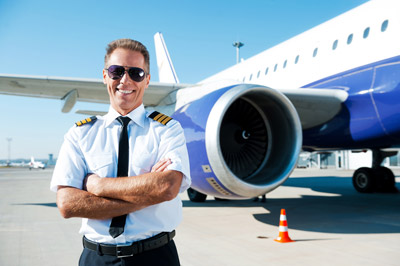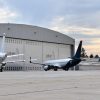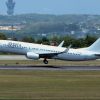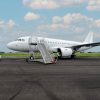 Remember that pilot shortage crisis that everyone is talking about? Well, according to pilots themselves – it’s all good. For the time being and for those who have the guts and the skills needed, things have never been better, says Dr. Hans Joachim Weinberger, an AviationCV.com captain with over 20 years of flying experience under his belt. Hans disagrees that pilot life has lost its magic or most of its perks. On the contrary, the pilot argues that the life is as great as ever. Moreover, if you’re willing and motivated enough to take an extra step, it could even be described as awesome.
Remember that pilot shortage crisis that everyone is talking about? Well, according to pilots themselves – it’s all good. For the time being and for those who have the guts and the skills needed, things have never been better, says Dr. Hans Joachim Weinberger, an AviationCV.com captain with over 20 years of flying experience under his belt. Hans disagrees that pilot life has lost its magic or most of its perks. On the contrary, the pilot argues that the life is as great as ever. Moreover, if you’re willing and motivated enough to take an extra step, it could even be described as awesome.
The reality behind the media headlines
“For someone who is fully aware and willing to overcome all the training challenges and accept the requirements, the time has never been better,” says Airbus A320 Captain, currently piloting for Small Planet Airlines. It might come as a surprise to some, but the complete and honest truth is that the much-escalated crisis actually affects just one of the two seats in the cockpit.
Experience is what airlines are short of in the industry these days and skilled first officers as well as certified captains are what the operators across the globe are after. And the main reason behind this serious issue is the rugged and raw road from graduating to taking the captain’s seat. The alarming retirement rates do not help, too. For example, within the next seven years in the US alone major airlines will need to replace 18 000 pilots who are to reach the mandatory retirement age of 65, shows the data in the Regional Airline Association’s report.
“On the other hand, there is an excess capacity of inexperienced pilots, mainly due to limited information and communication towards new applicants who have to fund their ATPLs, Type Rating training and Line Training as well as their initial experience these days,” explains Dr. Weinberger. “Nevertheless, if one is dedicated enough to pursue such a goal, the future is bright, simply because it has never been safer and more attractive to work as a commercial pilot.”
Investment that pays off in the long-term
The promising future that the pilot is referring to is becoming an experienced as well as certified PIC. It may take from 7 up to 16 (in some cases) years to reach this goal. Moreover, it requires a huge investment. Still, in the words of those who have already made the journey, it’s well worth it. And if you’re flexible and willing to relocate, you may find yourself living the dream.
“North American and European markets show only limited growth, primarily due to the union action and saturation. In the meantime, the CIS is a completely different market. For  experienced applicants from the western world it tends to open very slowly, leaving the East as the most promising place to live the pilot dream.” In other words, despite some issues with strict requirements and tests, Asia and Asia Pacific remains the best places to start your expat life and build a career, according to Hans.
experienced applicants from the western world it tends to open very slowly, leaving the East as the most promising place to live the pilot dream.” In other words, despite some issues with strict requirements and tests, Asia and Asia Pacific remains the best places to start your expat life and build a career, according to Hans.
The ever-growing need for air transport in this booming region is creating more and more jobs for experienced captains. Taking into account the number of new aircraft ordered by Southeast Asian operators, the future is more than promising. Adding to the appealing demand is remuneration. For instance, according to pilots, a job in the region could fill your pockets with around $200 000/year from day one of working in China. In addition, expatriates who are certified to fly the largest airplanes in the Asia Pacific market are currently being paid up to $300 000 per year.
Concurring the ‘hygiene factor’
According to Hans, in the end, regardless of where you decide to follow your dream, you want to work in the environment that is not only profitable, but caring as well. This may well lead us to the solution to this so called crisis – taking care.
“For an experienced pilot the salary is just a single aspect and we call it the ‘hygiene factor’ – this is something that is required, however, not sufficient. What will become of the utmost importance in the future is the general attitude of the employer towards its pilots”. It is as simple as that. If the experienced pilots end up feeling treated like resources rather than individuals, they will certainly seek a better respect at another airline, where they are definitely wanted.”
As concerns inexperienced pilots, Dr. Hans Joachim Weinberger says that there is no other way to avoid the significant shortage but to develop Cadet programmes which are coupled with pay-to-fly schemes. “Those who qualify and those who are willing to take on this career path would definitely take part in such a system. Moreover, it offers a great business opportunity for operators.”
Despite which path a pilot chooses – to be individual responsible and development the skills by their own strategy, or take part in similar projects suggested by Hans, one thing is clear – life is awesome for experienced pilots, and for those learning – it will be.





